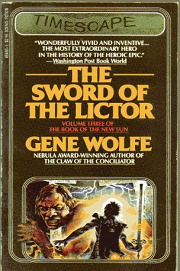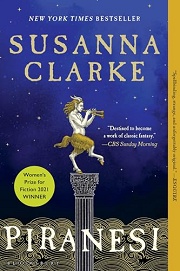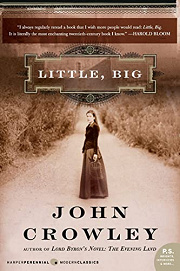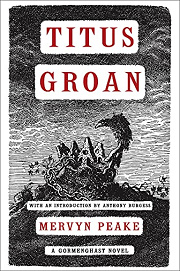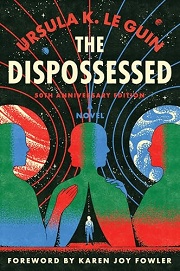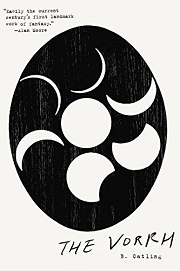Share your thoughts in a quick Shelf Talk!
The Sword of the Lictor by Gene Wolfe
Exiled from the citadel, a journeyman with a perfect memory travels through a dying world where the past is a labyrinth and truth wears many masks. Dense, dazzling, and unsettling, The Sword of the Lictor deepens a visionary tale of power, identity, and redemption.
Have you read this book? Share what you liked (or didn’t), and we’ll use your answers to recommend your next favorite read!
Love The Sword of the Lictor but not sure what to read next?
These picks are popular with readers who enjoyed this book. Complete a quick Shelf Talk to get recommendations made just for you! Warning: possible spoilers for The Sword of the Lictor below.
In The Sword of the Lictor, did you enjoy ...
... Severian’s slippery first-person account and memory games?
Piranesi by Susanna Clarke
If you were drawn to Severian’s self-contradictory recollections and the way truth keeps shifting—especially around the alzabo episode in the mountains, where memory and identity blur—then Piranesi will click. Its narrator records life in a vast House of endless halls and statues, certain of his own clarity even as his journals reveal gaps and revisions. Like Severian fleeing Thrax while insisting on perfect recall, Piranesi’s voice is intimate, sincere, and quietly unreliable, inviting you to read between the lines to find the real story.
... ornate, lapidary prose that turns the mundane into myth?
Little, Big by John Crowley
If what captivated you was the baroque elegance of Severian’s voice—the archaic diction and jeweled sentences describing Thrax’s streets and his flight into the high country—then Little, Big offers that same spellbinding texture. Crowley’s prose lingers the way Wolfe’s does, transfiguring houses, gardens, and family histories into something numinous. As Severian’s descriptions lend eerie grandeur to prisons, cliffs, and cloisters, Crowley’s language makes thresholds and kinships feel like doorways into a larger, hidden order.
... ritual-laden strongholds and symbolic, crumbling authority?
Titus Groan by Mervyn Peake
If the ceremonial weight and allegorical feel of Severian’s world grabbed you—the torturers’ guild rituals, the iron choreography of justice in Thrax, and the sense that every office and corridor stands for something larger—then Titus Groan is a perfect echo. Gormenghast’s decaying castle, like Severian’s City and its provincial power, is thick with rites and roles that trap its people. As Severian measures mercy against duty, Peake’s Steerpike and Titus move through hierarchies that are as symbolic as they are oppressive.
... meditations on justice, authority, and moral responsibility?
The Dispossessed by Ursula K. Le Guin
If what stayed with you was Severian wrestling with the ethics of punishment and power—balancing the letter of the law in Thrax against his own conscience, and wondering what the Claw’s grace demands of him—then The Dispossessed will resonate. Le Guin follows Shevek across rival societies as he tests ideals of freedom, duty, and obligation. Like Severian’s self-scrutiny after the alzabo night and other grim reckonings, Shevek’s journey is a philosophical quest about what we owe to others when given authority—or a miracle.
... dreamlike, uncanny landscapes where reality and myth interweave?
The Vorrh by Brian Catling
If you loved the eerie, surreal episodes—Severian’s trek beyond Thrax, the alzabo’s borrowed voices in the dark, and those moments when the world feels tilted toward myth—then The Vorrh delivers that same otherworldly charge. Catling’s sentient forest bends memory, time, and identity, much like how Severian’s path seems to brush against forces older and stranger than he can name. It’s a lush, unsettling voyage where the uncanny seeps into every clearing.
Unlock your personalized book recommendations! Just take a quick Shelf Talk for The Sword of the Lictor by Gene Wolfe. It’s only a few questions and takes less than a minute.
